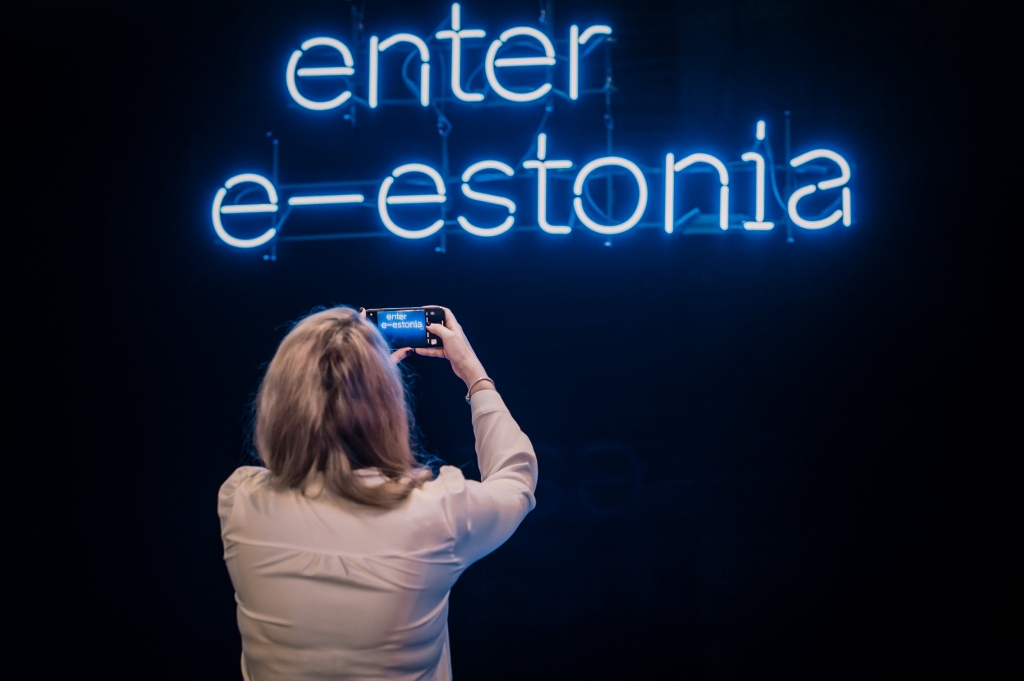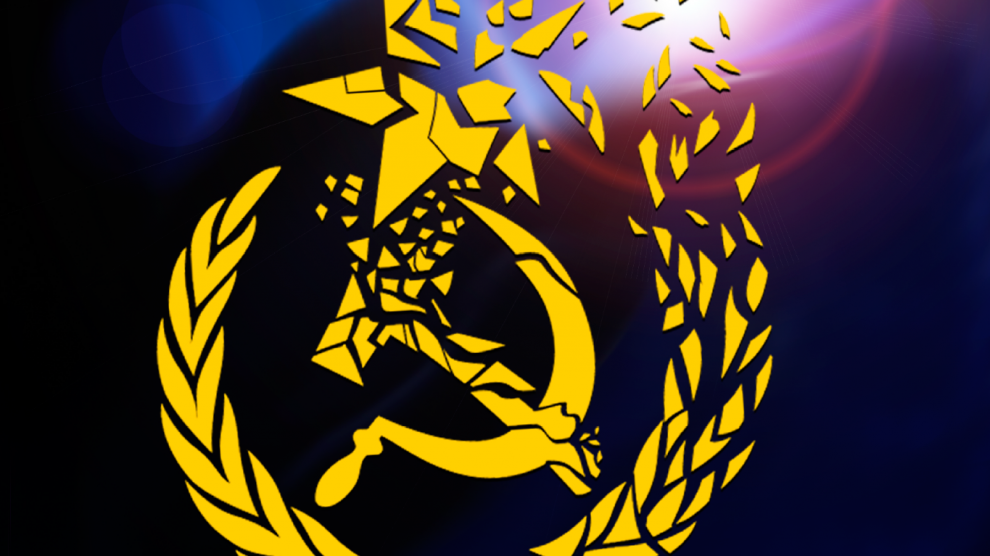Correct me if I’m wrong, but as a child growing up in the UK in the 1970s I don’t remember anyone ever referring to what was then West or East Germany through the prism of the Nazi era. Newspaper and magazine articles in 1975 did not begin with the words: “Thirty years since the end of national socialism…” Similarly, pieces about Italy made no mention of fascism and did not reference “the fall of Mussolini” at every opportunity.
Why then, do we persist in doing exactly that with the nations of emerging Europe? Why does our evaluation of these 23 countries – who have now been free of communism for as long as the West Germany of 1975 had been free of the Nazis – begin with 1989 (or 1990, or 1991), as if many decades, centuries and even millennia of history never happened?
“Communism in Eastern Europe lasted much longer than did national socialism in Germany and had a deeper effect on the organisation of society – I mean in terms of education, the economy, political structures and so on,” says Mark Baker, an independent journalist and travel writer who’s lived in Central Europe for more than two decades, and who has authored the Lonely Planet guides to Bulgaria, the Czech Republic, Poland, Romania and Russia.
“Communism in Eastern Europe poisoned at least two generations and wiped out all kinds of civil society structures that had to be rebuilt from scratch. The reconstruction has been a lot slower and harder than anyone could have imagined in 1989,” he adds.
Changing the narrative
The very name of our organisation, Emerging Europe, stems from a desire to move away from Cold War definitions of the European continent, and to avoid use of the term Eastern Europe, which carries negative connotations and does not even accurately describe countries such as the Czech Republic or Slovenia, whose capitals are further west than Vienna.
As such, at Emerging Europe we have long tried to avoid references to communism, but freely admit that we have not always succeeded. Sometimes (such as this year, when a number of countries across the region celebrate 30 years since the end of totalitarianism) it is impossible not to mention it.
Even then, changing the narrative is not always a positive step. In recent years it has been the illiberalism of certain – but not all – emerging Europe governments that has defined, for many, the entire region. There has been talk of a new Iron Curtain separating the progressive western part of the continent with a reactionary east that stamps all over the rule of law and vigorously opposes migration, women’s rights, gay rights and environmental issues.
“Some of the alternative descriptions which have appeared are not entirely complementary,” says Kit Gillet, who covers much of the emerging Europe region for publications including the New York Times and the Guardian. “Hungary right now is not being described as a post-communist country but as an illiberal democracy. They have at least cast off the old description, but the new one is not exactly positive.”
Bite-sized stereotypes
Sam Cage, a former Reuters correspondent who now runs a PR company based in Copenhagen, believes that part of the problem is the fact that emerging Europe is too big and too diverse to be branded as a whole.
“There are huge differences between the countries,” he tells Emerging Europe. “Prague is probably now as well off as Berlin and much wealthier than large parts of the old EU; Slovakia, the Baltics and Slovenia use the euro; Poland has the most consistent growth in Europe. If you define as one region everything that what was once behind the old Iron Curtain, then you will always be reinforcing that they are former communist countries. So maybe it’s time to look at them as smaller regions. The Baltics for example brand themselves around IT, while Central Europe is strong in manufacturing.”
Tony Barber of the Financial Times makes a similar point. “Central and Eastern Europe is not a monolithic region,” he wrote in August. “The most extreme version of regional illiberalism, that of [Viktor] Orban’s Hungary, has a stronger grip on power than others precisely because it has gone furthest in dismantling or corroding the institutions of a civic democracy. The Polish variant, that of [Jarosław] Kaczynski’s Law and Justice party, appears on course to win re-election in October because its policies appeal to millions of voters and the opposition is disunited.”
Understanding emerging Europe
“I think the issue comes down to human nature. We need a framework to understand something,” says Kit Gillet.
“Many people do not have a clear idea about what the countries in this region represent, or what they can offer. Until there is an alternative or until people make their own associations, these frameworks will remain: post-Soviet, former communist, behind the Iron Curtain,” he adds.
Alex Webber, the editor of the Warsaw Insider, agrees with him.
“There is a level of ignorance in the ‘west’ about what CEE is and means,” he tells Emerging Europe. “Background is worthwhile and valuable. What isn’t, is simply referring to ‘the former communist nation of Poland’ and leaving it at that. In many instances there is value in referencing history: but it’s all about how it is done.”
Webber believes that there is a case to be made for not throwing communism out of the region’s descriptive canon entirely.
“Certainly in Poland’s case, design and arts thrived: the graphic art, modernist architecture and design aesthetic of this era (particularly in the 1960s and 1970s) are celebrated to this day and continue to influence the output of contemporary creatives involved in these fields. The form and function of the PRL (People’s Republic of Poland) style is now a bedrock for many of our established and upcoming designers who have sought to harness and finesse the revolutionary ideas of the time whilst reviving the craftsmanship associated with the period,” he says.

Lessons from Estonia
Kit Gillet points to the Baltics, Estonia especially, as positive examples of countries which have to a certain extent begun to change the way that the world views them.
“When you have companies like Skype and TransferWise you can start to change the narrative,” he says. “The Baltics are doing well at being seen as young dynamic countries doing exciting things.”
Those things do indeed help, but as Mr Gillet adds it is not easy to transform a country’s image overnight.
“A marketing campaign cannot do it alone,” he says. “It needs to be multiple things, and Estonia is a great example. The change has not been quick, but with the tech hub giants coming through, the media stories we see about the country change. The majority of the stories which come out of Estonia now tend to be tech-related and positive. It reaches a critical mass of stories and leads journalists to change their framing.”
One of the people responsible for making that happen is Tobias Roth, business engagement manager at the e-Estonia Showroom, which spreads the word about Estonia’s digital success across Europe and the world.
“Here at the briefing centre we showcase the brand e-Estonia and the digital transformation the country has achieved,” he tells Emerging Europe. “We explain how Estonia has got to where it is today. The first job is to tell people exactly what e-Estonia is and how it works, and then to turn the interest people have for Estonia into leads for businesses.”
Roth hosts hundreds of delegations each year from a wide range of backgrounds, from both the public and private sectors, and from university students to world leaders. German Chancellor Angela Merkel has visited, and the day before he spoke to Emerging Europe Mr Roth hosted the vice president of India, Venkaiah Naidu.
“They want to see what the digital transformation looks like,” he says. “They want to learn from Estonia. And this is a great door opener which allows Estonia to tackle the prejudice and stereotypes that have been around for far too long. It offers Estonia the chance to be taken seriously on the international stage.”
The further east you go, the more difficult it becomes
What all of the journalists I spoke to for this piece are at pains to point out is the need for reporting to be accurate, and to ensure that countries are not whitewashed. This does make avoiding references to communism difficult, as the legacy of communism is still valid to what is happening.
“For some of the countries in the region I cannot remember the last time I used the phrase ‘former communist’,” says Mr Gillet. “But for a place like Moldova, I have.”
“We need to remember that for many people this is still a region that is not that well known,” he adds. “You can’t really change that level of knowledge. There are 200 plus countries in the world and you can’t expect a reader to know something about all of them. Those which are in the EU or have expressed a desire to join are better known because they are part of the European family or are on the path towards becoming so. But when you are based in this region you often forget how little knowledge seeps out. I like to think that when there is a story about a huge protest in Bucharest for example, people have noticed. Then you talk to people back home and find out that in fact, they haven’t.”
The EU: A new point of reference?
It’s clear that how to break free of the communist past – and the negative preconceptions it entails – remains one of the key challenges facing emerging Europe as the region looks to move up the value chain and change perceptions about what it can offer visitors, investors and – perhaps most importantly – its own people.
As Mark Baker points out, communism is still the main differentiating point between countries on either side of the former Iron Curtain because “it is such a convenient defining marker.”
Knowing how to stop it – and how to stop offering the countries of emerging Europe cover for their failings – is difficult.
“But it’s definitely time to toss it out. Otherwise how can we expect these countries to get serious about transforming their societies?,” he adds.
The fall of communism will once again take centre stage this autumn and winter as across the region, countries celebrate the 30th anniversary of the various revolutions (peaceful or otherwise) which ended totalitarianism and ushered in the present era of democracy. As we look back on the events of 1989 however, it might be a good idea to take the opportunity to draw a line – once and for all – under the communist period. In the future, we should all do our best to use different, more relevant defining moments.
For those emerging Europe nations which are members of the EU, the date they joined the bloc could be the new point of reference.
“Yes, I think that ’15 years on from EU membership’ sends a more positive message that ’30 years since the fall of communism'”, agrees Mr Baker.
It is clear that the emphasis is on those of us who write about the region to find new ways to define it.
“As journalists, we can certainly have an effect. It was the media that first branded these places as poverty-stricken, de-humanising cities or countries, and it’s the media that can do much to change that,” says the Warsaw Insider’s Alex Webber.
However, as Kit Gillet succinctly puts it, it is also up to the countries themselves to define new narratives.
Estonia has managed to do just that. It’s time for the rest of the countries of emerging Europe to do likewise.

